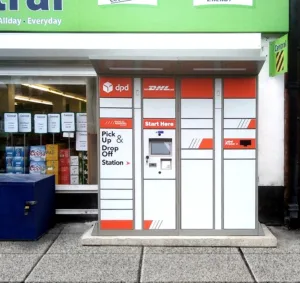By Nathan Lomax, co-founder of Quickfire Digital
The cost of living crisis is hitting online retailers hard: supply chain and energy costs have risen sharply, pushing up prices to customers and resulting in falling sales.
With wages not keeping up with inflation and the fallout from Brexit still being felt, we’ve seen the UK’s biggest online retailers suffer an unprecedented slump. It’s easy to believe that we’re living through a period of doom and gloom.
However, let’s not forget the UK is the third largest e-commerce market in the world. The online share of all retail sales continues to follow its upward trend, and online revenue generated in the UK is predicted to be 65% higher in 2027 than it was last year.
So consumers are still buying, but they are being more selective – and that presents an opportunity for ecommerce brands, particularly in the area of sustainability.
While retailers focusing on value and low prices are predicted to benefit as cheaper product alternatives are sought, environmentally-conscious consumers are increasingly looking for green shopping options.
And that can provide an invaluable point of difference in the competitive e-commerce world.
Consumers will boycott unsustainable brands
A growing number of consumers are putting credible green values at the top of their shopping list with a recent piece of research* highlighting that four in five in the UK will boycott fashion brands which fail to prioritise an environmental and social agenda within the next two years. That’s a lot of customers to potentially lose to competitors in a very short space of time.
So what can ecommerce brands do in order to grow during the current cost of living crisis? Primarily, they can make their green credentials a core part of their marketing, and promote their beliefs, values and shopping options as distinct alternatives to the practices of low-price retailers.
There are plenty of ecommerce brands steering a more ethical course and proving that profitability doesn’t have to come at the ultimate cost of destroying the world around us.
In the UK – on the Isle of Wight to be exact – there’s Rapanui. The business makes clothing only when items are bought – therefore reducing waste – and incentivises customers to send their old items back so that the material can be recycled and made into new clothes. Richard Branson has said “Rapanui are in my list of the top 50 global eco companies.”
Activewear brand Tala is growing through selling sustainable ranges made from recycled, upcycled and natural fabrics.
And Coral Eyewear – which makes glasses and ski goggles from recycled materials including fishing nets from the sea and plastic out of landfill – is an exciting, growing brand which has recently announced partnerships with the Lawn Tennis Association and Kent Cricket Club, among others.
Planning for a sustainable ecommerce future
The Head of Retail for KPMG, Paul Martin, has stated that all retailers should prioritise ESG (environmental, social and governance) efforts to strengthen their brands, and that this needs to be a top-three boardroom agenda item.
Here are three areas which I believe e-commerce businesses need to be thinking of when considering why they should be having those sustainability discussions in the boardroom:
- Customers want to ‘buy better’, but it’s not easy to navigate the world of e-commerce with brands vying for our attention across multiple platforms. Those online retailers which can grow trust and loyalty through their actions are on to a winner. According to Shopify, the average apparel repeat customer rate is 26% so that’s a great benchmark for your own business. And with marketing cost-per-acquisition costs on channels such as Google and Facebook continually increasing, building loyalty makes commercial sense
- While we’re all invested in the planet’s health, the issue of climate change is undoubtedly at the forefront of young people’s minds. And they are the next generation of shoppers, who are particularly savvy when it comes to greenwashing and inauthentic messages. Brands that truly believe actions speak louder than words will gain respect – and sales
- You know that next generation of shoppers? Well, they’re going to be your new members of staff as well, and businesses which want to improve their working practices will encourage the best talent. Renowned green brand Patagonia boasts a staff turnover rate of less than 4% against an industry average of 13% – showing you can earn respect and people’s loyalty.
Green means go for ecommerce
Pockets of the ecommerce world are building brands based on strong values and ethics – from recycling waste to only trading with suppliers who pay a living wage, and plenty in between. But this is far from ubiquitous, and genuine sustainability practices remain a strong marketing message to entice new customers and retain existing ones.
And that presents an opportunity within the financially-challenging time consumers are facing right now.
Budget brands will continue to promote their value – some might even pay lip service to their ESG efforts – and it means e-commerce businesses with sustainability at their core can drive a different message. And it’s one that is appealing to more and more people.
For more information on how consumers are shopping and searching for sustainable clothing download for free The Green Fashion Search Report.
* Research commissioned by Quickfire Digital and Climbing Trees. 2,000 UK consumers.









